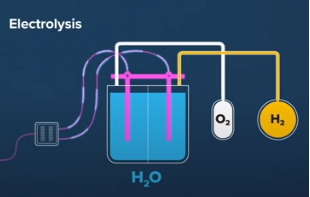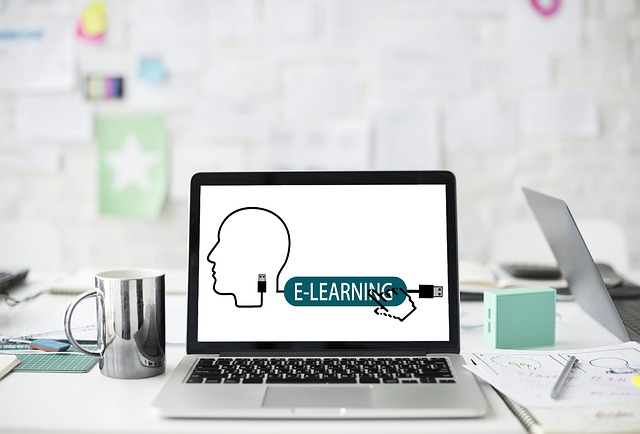Test Amit sep
Knowledge and Skill Based Employment: Opportunities and Challenges

Globalization, information boom, and increased competition have increased the demand for a trained workforce in developing and developed nations. As a result, countries are thriving to employ skilled workers who can bring a competitive edge to the market to achieve global quality standards, bring advanced technologies, and enhance their foreign trade to boost industrial and economic development.
Skill-based hiring refers to employers setting specific skill or competency requirements or targets (with or without degrees) for potential candidates looking for employment opportunities. Globalization, information boom, and increased competition have increased the demand for a trained workforce in developing and developed nations. As a result, countries are thriving to employ skilled workers who can bring a competitive edge to the market to achieve global quality standards, bring advanced technologies, and enhance their foreign trade to boost industrial and economic development. Therefore, knowledgeable and skilled professionals are becoming the driving force of a nation’s social-economic development. India has become a knowledge-based economy with abundant competent and qualified human resources.
Benefits: Advantages of Skills-Based Hiring:
Companies and employees both can benefit from refocusing on hiring practices on skills such as the following
- A Higher candidate pool
- Better competency assessment
- Faster time to hire
- Higher retention
- Greater diversity
Lately, the Indian government has implemented substantial legislative and institutional regulations to encourage skilled professionals. Consequently, flagship sectoral Skill Councils were established to identify the training programs.
Some of the flagship programs are listed below:
1. Udaan
2. Pradhan Mantri Kaushal Vikas Yojana
3. STAR: Standards Training Assessment and Reward Scheme
4. SANKALP: Skill Acquisition & Knowledge Awareness for Livelihood Promotion
5. Polytechnic Schemes
6. Rozgar Mela
7. Artisans' Training Schemes, etc.
These schemes are created to provide skill sets to young minds and enhance their chances of employability. The Government of India is continuously trying to synchronize the actions of the State Governments and private stakeholders to develop an ecosystem for entrepreneurial ventures and capacity building. The Ministry of Skill Development and Entrepreneurship (MSDE) continues to facilitate enrolment in long-term courses and short-term training for the youth entering the job market.
Opportunities
The opportunities brought about by skill-based learning are tremendous and relevant in today`s world. There is a comprehensive list of employment Skills (Listed by Job) below:
• Business / Administrative: Administrative / Secretarial, Business Analyst, Business Development, Business Intelligence, Business Manager, Chief Executive, Officer, Chief Sustainability Officer, Consulting, Executive, Executive Assistant, Human Resources, Management, Notary, Office Assistant, Office Manager, Personal Assistant, Receptionist, Training Coordinator.
• Creative / Media Industry: Advertising, Art Curator, Broadcaster, Content Strategist, Digital Media, Editing, Fashion Design, Fashion Buyer, Graphic Design, Interior Design, Makeup Artist, Museum Curator, Photography, Public Relations Social Media, Television / Film Producer, Web Design, Writing.
• Education / Public Sector / Non-Profit: Career Counselor, College Admissions, College Professor, EMT / Firefighter, Fundraiser, Law Enforcement Skills, Librarian, Paralegal / Legal Assistant, Policy Analyst, Public / Non-Profit Administrator, School Psychologist, Social Work, Teaching.
• Finance Industry: Accounting, Banking, Bookkeeping, Chief Financial Officer, Claims Adjuster, Finance, Financial Advisor / Planner, Insurance, Investment Banking, Analyst, Underwriter.
• Healthcare: Certified Nursing Assistant, Chiropractor, Counseling, Dental Assistant, Dentist, Health Care Skills, Healthcare / Hospital Administration, Licensed Practical Nurse (LPN) Skills, Massage Therapist, Medical Assistant, Medical Secretary, Nursing, Nursing Assistant, Optician, Orthodontist, Pediatrician, Pharmacist, Pharmacy, Technician, Phlebotomist, Physical Therapy Assistant, Physical Therapist, Physician, Physician Assistant, Respiratory Therapist, Speech Pathologist, Ultrasound Technician, Veterinary Technician, Radiologic Technologist.
• Information Technology: Android Developer, Big Data, Computer, Computer Programming, Data Scientist, Information Security Analyst, Information Technology, iOS Developer, IT Manager, IT Soft Skills, Product Manager, Project Manager, Search Engine Optimization (SEO), Scrum Master, Software Developer, Software Engineer, Software Quality Assurance (QA) Engineer, Tech Support, Technical Support Engineer.
• Sales / Marketing: Inside Sales, Marketing Automation Specialist / Manager, Market Research Analyst, Marketing, Pharmaceutical Sales, Real Estate, Retail, Sales, Sales Associate.
• Service Industry: Bartender, Beautician, Cashier, Chef, Concierge, Custodian, Customer Service, Esthetician, Flight Attendant, Hair Stylist, Hospitality Industry, Hotel Front Desk, Guest Services Skills, Personal Trainer, Pilot, Restaurant and Food Service, Restaurant Host / Hostess, Server, Travel Agent, Travel Coordinator, Waiter / Waitress, Wedding planner, Special Events Planner.
• Skilled Trade: Aircraft Mechanic, Automotive, Boilermaker, Brick Mason, Carpentry, Construction, Electrician, Heavy Equipment Operator, Machinist, Maintenance and Janitorial, Painter, Plumber, Surveyor, Telecommunications Equipment Installer, Welder.
• Technical / Research / Engineering: Architect, Civil Engineer, Engineering, Mechanical Engineer, Meteorologist, Research Assistant
ChallengesThe four significant stakeholders- business, labor, government, and training providers- must work simultaneously in synchronization to make the efforts productive and fruitful. In India, skill development is dependent on government funding or public-private partnership. Countries such as China, Japan, the US, and European countries are already coping with the issues of an aging population and increasing dependency ratios. In contrast, India has an average age of 29 years and a middle-age much below China and even OECD countries. However, the literature suggests that technical education and exercise increase the probability of higher salaries or remuneration increases. Although, informality in the economy doesn’t incentivize such initiatives. Therefore, a skill-centered education system needs to be developed and coordinated well with the demand and supply of geographies, industries, and markets. Moreover, these initiatives should concentrate more on the lagged/backward areas where the idle labor force is abundant. Apart from this, the institutional and financial frameworks must provide a reliable bridge between the world of learning and its practical applicability to make the training programs relevant.
How would you rate this Article ?
Press the number of stars to rate this Magazine.
4.8 Author Points.
Based on 13 Magazines written by this author.
No Magazine Ratings yet



































Please Sign In or Sign Up to leave a Comment.